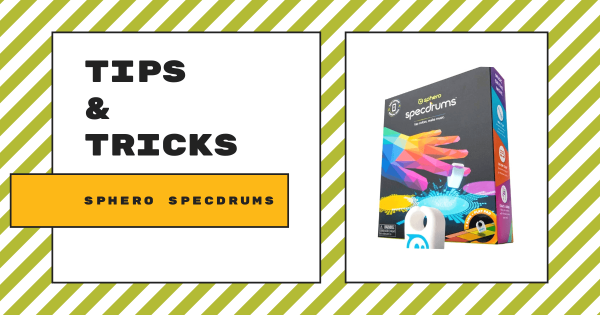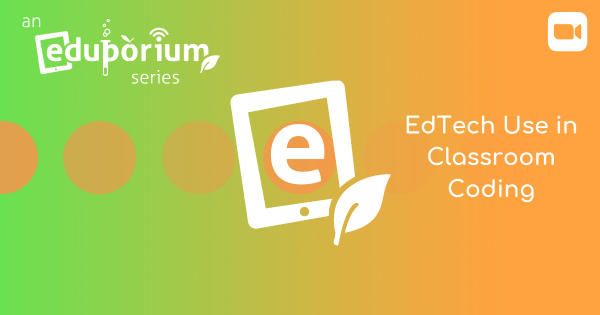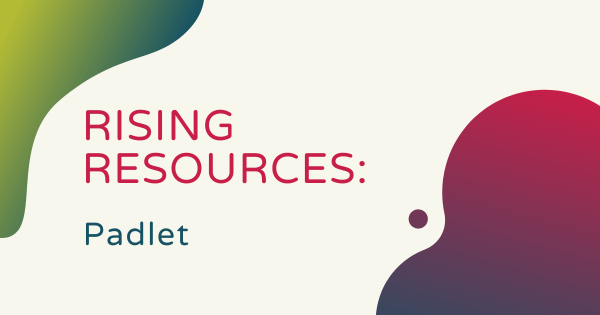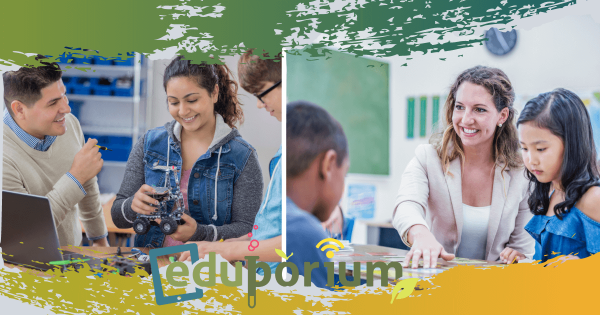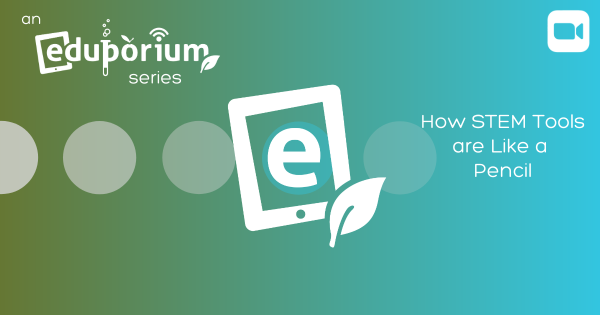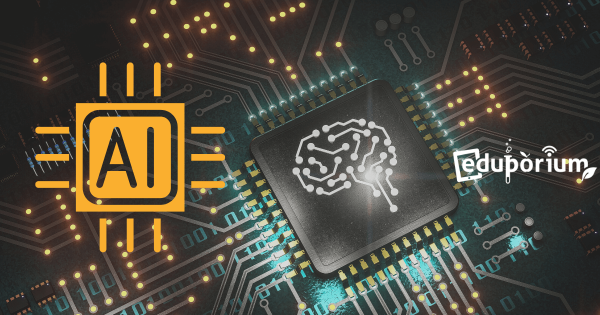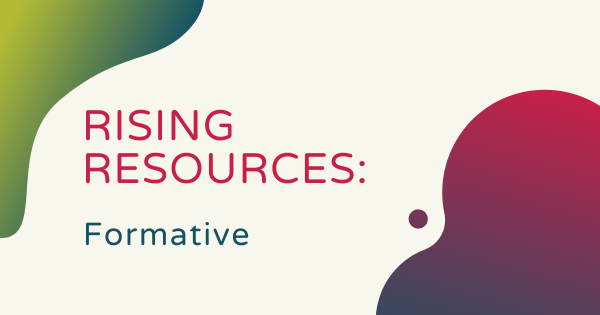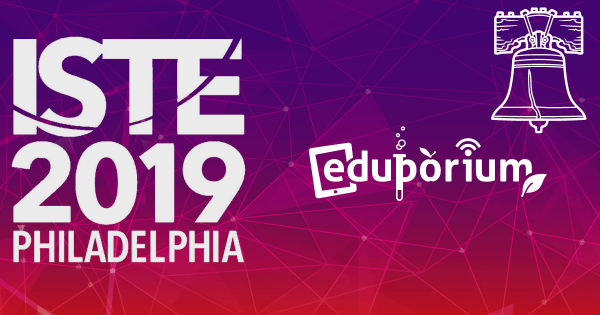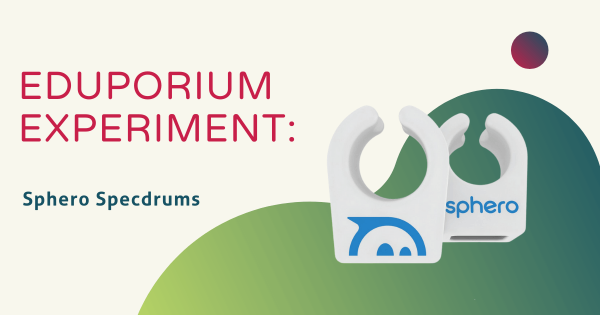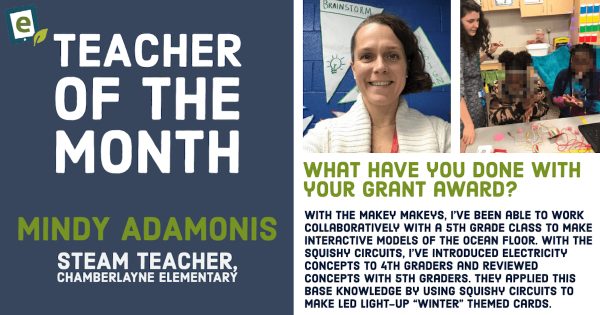The Sphero Specdrums are essentially technological synesthesia brought to life. Kids can turn the colors in their physical environment into sounds that they can modify, customize, and record. Keep reading to learn more about the Specdrums and how these tiny pieces of technology create big opportunities for creativity in many different subjects.
EdTech
Educational technology has, of course, completely transformed how today's K-12 students learn. From basic 3D printers and virtual reality systems to simple coding robots and screen-free building tools, countless numbers of educators have been able to affect education for the better and help children develop transferrable skills for the real world. Since EdTech now covers so many areas, however, there often remains a lot for teachers to learn about and explore. Not every technology tool will impact your students in the same ways, nor will they enhance every single lesson. It's more about finding the right solutions for the right situations and building high-quality instruction from there. In this section, we cover everything from specific classroom STEM kits to insights on integrating EdTech tools in teaching. And, we'll continue adding new resources with thoughts on the many branches of the EdTech tree.
EdTech resources are constantly impacting student development and redefining how educators can engage them. Besides those hands-on technologies, digital tools and platforms also play a huge role in learning. From coding or artificial intelligence to social-emotional learning, the instant availability of EdTech resources generates many revolutionary opportunities all throughout the world of K-12 and higher education. When it comes down to it, however, equitable access to technology can be a complete game changer. With these opportunities, students can build the hard and soft skills to navigate our increasingly complex world. And, no matter how complex or simplistic EdTech activities are, they can help catalyze that development. We encourage you to browse the content below and reach out to our team with any questions.
-
Video: Getting Started with EdTech in Classroom Coding
Eduporium co-founder, Irina Tuule, discusses some ways for educators to ease into EdTech use. By starting small and integrating tech tools in a way that’s comfortable to you, teachers can set themselves up for increased engagement and success while trying different things—just like in The Little Red Riding Hood! -
Rising Resources | Promoting Collaboration with Padlet
Padlet is an online platform that allows educators to create and collaborate easily and efficiently. A huge part of teaching in the 21st century is being creative and keeping the attention of students with unique content. Keep reading to find out how Padlet helps educators accomplish exactly that in a way that truly benefits students. -
Eduporium Weekly | All About EdTech Integration
Why would district leaderss create brand-new positions for people or re-assign existing employees to very different roles? Well, technology has a lot to do with that and the effectiveness with which it’s woven into each school’s curriculum and everyday projects can do a lot for a child’s future, helping to equip them with both hard and soft skills. -
Video: How STEM Tools Are Like a Pencil
Educators are always wondering about the best technology for their classrooms and there isn’t always a definite answer. What’s best for one teacher and group of students depends on learning goals, classroom environment, and previous experiences with EdTech. Watch the video to learn why our Irina Tuule believes EdTech is simply like a pencil. -
Eduporium Weekly | Questions About AI in Education
Artificial Intelligence (AI) refers to computer systems that are able to complete tasks that would normally require human intelligence to do. And, education leaders are finding ways—whether popular or not—to bring it into the classroom with the hopes of either maximizing educator efficiency or improving student achievement—or both. -
Rising Resources | Formative for Personalized Assessments
Formative assessments can be used to count as graded work or simply for teachers to gain a clearer understanding of student progress. They can be formal or informal and the best ones often lend ideas for how teachers can improve their instruction. This takes time, however, and that’s why Formative helps teachers in individualizing instruction. -
Our ISTE 2019 Experience: What We Learned
We had a blast attending this year’s ISTE Conference in Philadelphia. It was a great couple of days and we truly enjoyed getting to catch up with a lot of our vendor and educator partners. The topics on everyone’s minds ranged from AI in education to creating more agency in professional learning with keynotes aimed at inspiring educators. -
Eduporium Experiment | Sphero Specdrums
Though known for designing some of the most useful tools in robotics education in the Sphero SPRK and Sphero BOLT, this item from Sphero certainly has a different twist. We’re talking about the Sphero Specdrums—sets of music-making rings that kids (or adults) can place around their fingers and create music anytime and, more importantly, in any place. -
Eduporium Featured Educator: Mindy Adamonis
Each month, we’re highlighting the efforts of an educator who is effectively using EdTech to empower his or her students. This month, we are featuring Mindy Adamonis, who has been using EdTech tools she’s received through our technology grant program to enhance some science and social studies projects for various students across different grade levels.




